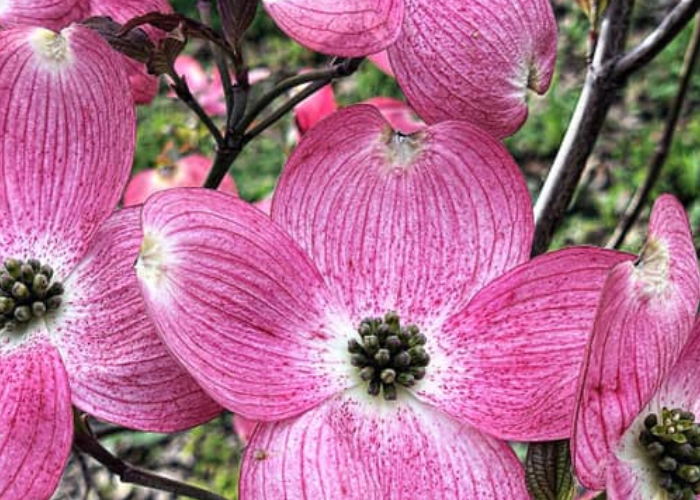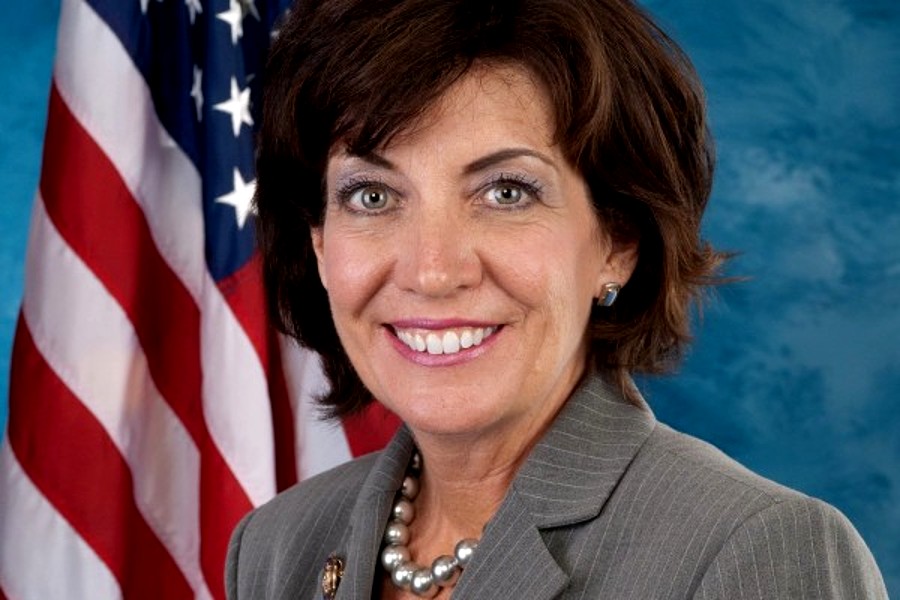
Today, the New York City Community Garden Coalition (NYCCGC) and environmental law organization Earthjustice led over 70 allied groups.
The (collectively, petitioners) in submitting “From the Ground Up II: A Supplemental Petition to Protect New York City’s Community Gardens,” urging New York City officials to increase legal protections for community gardens on City-owned land.
Following New York City’s official Open Garden Day earlier this month, today’s supplemental petition details community gardens’ widely recognized health benefits, natural settings, agricultural and social values, and ecological importance, all of which make gardens eligible for designation as Critical Environmental Areas (CEAs) under New York’s State Environmental Quality Review Act (SEQRA).
Today’s petition supplements an earlier petition submitted in November 2020.
As New York City Mayor Eric Adams has recognized, community gardens provide “educational, therapeutic, self-governed space that greens our city, increases community organization and food sovereignty, and diminishes [social] divides.” Despite their many benefits, however, community gardens on City-owned land have little protection. A number of gardens are currently threatened by development projects.
Updated data make clear that most community gardens on City-owned land are in communities where residents lack easy access to public parks. As a result, community gardens fill the role of parks in these communities. And, beyond filling the role of parks, community gardens offer advantages because gardens are flexible, functional greenspaces imagined by community-members from the ground up. Under current law, parks are protected from development, but community gardens are not.
- On average, community board districts in the Bronx, Brooklyn, Manhattan, and Queens have 1.4 acres of parkland for every 1,000 residents.
- However, 80% of the 453 community gardens on City-owned land in these boroughs are in community districts that fall below this average.
Community gardens help to address food insecurity resulting from — and predating — the COVID-19 pandemic. By creating opportunities for New Yorkers to grow their own fruits, vegetables and herbs, community gardens increase access to healthful, affordable and culturally appropriate food, while honoring gardeners’ sense of human dignity. Community gardens also help to alleviate increasingly severe rent burdens, because the opportunity to grow food allows gardeners to put more money toward rent.
In addition, community gardens advance climate justice. First, community gardens include vegetation and permeable surfaces that absorb excessive rainwater, reducing the risk of dangerous flooding that, evidence shows, causes significant harm to low-income communities of color. New York City recently experienced two record-breaking rainfall events and heavy rainfall is likely to become more common in the future. Experts recommend increasing greenspace to prevent future flooding and preserving community gardens, many of which are located in under-served communities, is a necessary first step toward satisfying this recommendation in an equitable way.
Second, community gardens further advance climate justice by mitigating climate change-induced extreme heat events such as heat waves, which disproportionately harm communities of color in New York City. Indeed, according to the New York City Department of Health and Mental Hygiene, African Americans in the City are twice as likely to die from heat exposure as white New Yorkers. The Biden Administration encourages “using urban tree, forest, and greening projects to reduce extreme temperatures and heat exposure.” Protecting community gardens will ensure that they continue to offer a respite from extreme heat in under-served communities across New York City.
CEA designation would provide much-needed legal protections for community gardens. Under SEQRA, government agencies can designate specific areas as CEAs if they exhibit just one of the following characteristics: a benefit to human health; a natural setting; agricultural, social, cultural, historic, recreational, or educational values; or ecological or hydrological values that may be negatively affected by any change. As today’s petition makes clear, the vast majority of, if not all, community gardens on City-owned land possess all four characteristics.
Petition Requested Actions
To ensure that New York City’s community gardens’ contributions endure for years to come, Petitioners make the following three requests.
- First, Petitioners request that City agencies with jurisdiction over the community gardens named in the petition and supplement designate those gardens as CEAs under the SEQRA within six months following the submission of this supplement, or by December 14, 2022;
- Second, Petitioners request that within twelve months following the submission of this supplement, or by June 14, 2023, the Department of Parks & Recreation’s GreenThumb Program conduct an assessment of all remaining community gardens on City-owned land and confirm, in consultation with community gardeners, that these gardens meet the regulatory criteria for CEA designation; and
- Third, Petitioners request that within twelve months following the submission of this supplement, or by June 14, 2023, City agencies designate as CEAs all City-owned community gardens within their respective jurisdictions that meet the regulatory criteria for CEA designation, based on GreenThumb’s assessment.
“For our diverse communities throughout the city, the heart and soul of this petition is to be found in our community gardens. When our communities were abandoned by the City, it was, and still is, through spontaneous acts of faith in one another that we came together to reclaim our communities and honor our sense of human dignity,” said Raymond Figueroa, Jr., President of the New York City Community Garden Coalition. “It is through the cultivation of the soil as a collective in our community gardens that we are cultivating and re-affirming our cultural sense of community. It is in the harvesting of the flowers and the food as a collective that we share the blessings of beauty, health, and healing in our lives. When we’re in our community gardens, we freely breathe the fresh air that’s been purified by the plants and trees, and our spirits are renewed by the energy field of love we call Mother Earth.”
“When I volunteer at Drew Gardens, I feel that I’m really making a difference, whether it be with giving someone two handfuls of tomatoes or just sitting down listening to them or sharing some garden skills with them,” said Ivette Vargas, Board Secretary, Drew Community Garden in The Bronx.
“My life is better because of the garden. It’s a patch of green in the pavement-covered city. A place to meet different people that live in the neighborhood, some with similar life experiences, but also some whose lives are wildly different from my own,” said Brian Henderson, Garden Steering Committee Member, Java Street Community Gardens in Brooklyn. “The garden is where I made some of my first friends when moving to the neighborhood.”
“I come out of the garden so energized. I could be so drained of energy, and I can come in here and I meet neighbors—say there’s somebody from Jamaica, and they’re telling me about callaloo, which is a Jamaican plant, and I hear about that, and I’m like, ‘I’ll grow that for you’—it overwhelms my cup with energy and happiness,” said Timothy Brown, Treasurer & Steward, Dorothy K. McGowan Memorial Garden in Washington Heights.
“During the height of the pandemic, we were the only outlet in Upper Manhattan where community members could drop their food scraps—they closed everything else. We stayed open. We saw a massive increase of people dropping off their compost when the city shut its collection. The word got out. People were coming out of the woodwork,” said Maggie Clarke, Founder & Garden Chair, Riverside-Inwood Neighborhood Garden in Manhattan – Dyckman.
“For decades, we’ve known that community gardens improve our city by increasing access to fresh fruits and vegetables, strengthening social and cultural connections, and supporting healthy urban habitat. Now, new information proves that community gardens are also essential to advancing equity and justice,” said Alexis Andiman, senior attorney with the Sustainable Food & Farming Program at Earthjustice. “It’s time for New York City to recognize the value of community gardens and start working with gardeners to secure the protections that community gardens so richly deserve.”
New York City Community Garden Coalition (NYCCGC)
Founded in 1996, New York City Community Garden Coalition’s mission is to promote the preservation, creation, and empowerment of community gardens through education, advocacy, and grassroots organizing.
Earthjustice
Earthjustice is the premier nonprofit environmental law organization. We wield the power of law and the strength of partnership to protect people’s health, to preserve magnificent places and wildlife, to advance clean energy, and to combat climate change. We are here because the earth needs a good lawyer.
Become a Harlem Insider!
By submitting this form, you are consenting to receive marketing emails from: . You can revoke your consent to receive emails at any time by using the SafeUnsubscribe® link, found at the bottom of every email. Emails are serviced by Constant Contact








